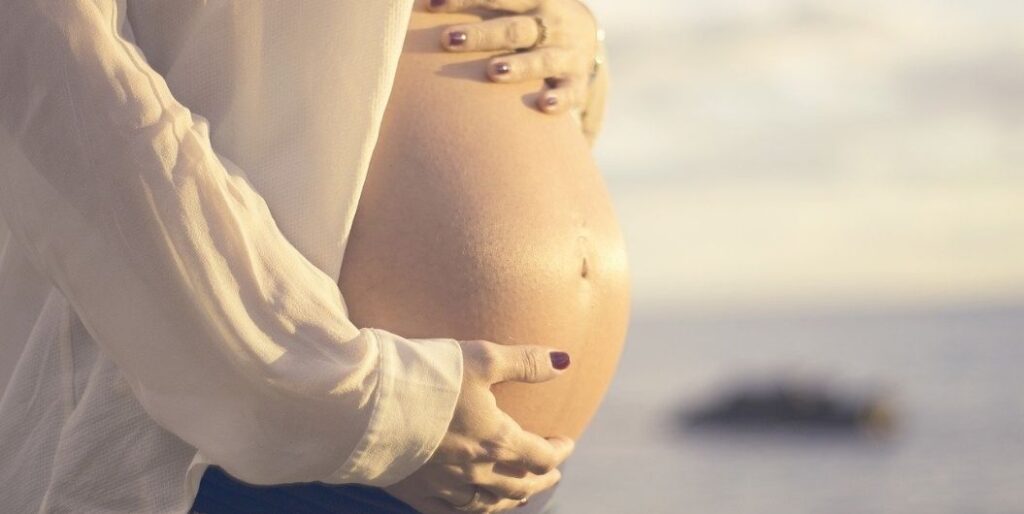What Should I Expect My Third Trimester?

While your second trimester may have lived up to its “honeymoon” reputation, your third trimester (28 to 40 weeks) may be slightly less pleasant. By the beginning of the third trimester, you may be feeling like you’re ready to get this pregnancy over with! Due to a rapidly growing baby, your body is definitely being taken over — making nearly everything more difficult and uncomfortable.
Your Body

- Weight Gain: Average weight gain up through the third trimester is between 25 to 35 pounds (11 to 16 kg). All that added weight you’re carrying up front is causing pain and discomfort in back. Your back, hips and pelvis may ache at the end of the day, or constantly.
- Swelling: Fluid retention and reduced circulation contribute to swelling of the face, hands, legs, ankles and feet. The fluid retention causes pressure on your nerves, which may lead to carpal tunnel syndrome.
- Breathlessness: Your growing uterus pushes up into your diaphragm, crowding your lungs. You may feel out of breath getting up out of your chair, walking up the stairs, even bending over to put on your shoes. As you near the end of your pregnancy, this may improve when the baby drops further into your pelvis.
- Heartburn: The combination of a relaxed valve in your esophagus due to progesterone and your uterus pushing into your stomach is a recipe for heartburn. Some women get heartburn after eating or drinking anything during their third trimester.
- Hair/Skin: Although you may be grateful for the new head of lucsiouly thick hair on your head, you may be cursing the new, not so luscious growth of hair in inappropriate places such as your face, chest and stomach. Your skin may be sprouting skin tags, as well as patchy, pigmented spots called melasma. If you didn’t start getting stretch marks your second trimester, you’ll likely be developing these angry red marks before the end of your pregnancy.
- Bladder: You will most definitely be experiencing the urge to urinate frequently. You’ll also find that your ability to hold a full bladder diminishes significantly in your third trimester. Learn how to cross your legs quickly when laughing, coughing or sneezing.
- Breasts: Your breasts will have an added 1 to 3 pounds (453 g to 1.36 kg) of breast tissue to accommodate making milk after the baby is born. Colostrum, which is pre-milk, may begin leaking from your nipples in your third trimester.
- Hemorrhoids: Increased pressure on your rectum coupled with a slow-moving digestive tract may result in hemorrhoids in your third trimester. Make sure that you’re getting adequate fluids and fiber in your diet, and speak to your doctor about safe ways to treat constipation.
- Sleeping: You’re big, you’re uncomfortable, you’re hot, the list goes on. Sleep depravation during your third trimester is quite common — just think of it as preparation for a new baby. Most women find it uncomfortable to sleep on their sides, but because sleeping on your back can cause a drop in blood flow and oxygen to your baby, it is not advised. Experiment with several pillows to see which combination works to support your stomach and knees.
- Braxton Hicks: These practice contractions are often mistaken for real labor. In reality, it’s your uterus gearing up for the real deal, or a way for your body to tell you to slow down.

Anticipation
You’re probably getting extremely antsy in anticipation of the arrival of your baby. If you haven’t already done so, the third trimester is a good time to get your childbirth education classes done, prepare your birth plan and pack your hospital bag. You’ll be seeing your doctor every two weeks at 32 weeks, then every week after 36 weeks. The baby will be moving a lot in the beginning of your third trimester, but this will taper off towards the end as things get more crowded in your uterus.
Early Signs of Labor
You’ll find that your Braxton Hicks contractions may increase in your third trimester and may even get a little more intense. These are signs that you should slow down, take a little rest and drink some water. If you are feeling painful contractions that are becoming more regular, you may be in early labor. If these occur after 37 weeks, you’re full term, but prior to this may be too early. Be sure to call your doctor if you experience early labor, or anything that may be of concern to you.
